Judaism is an ethnic religion comprising the collective religious, cultural and legal tradition and civilization of the Jewish people. Judaism is considered by religious Jews to be the expression of the covenant that God established with the Children of Israel. It encompasses a wide body of texts, practices, theological positions, and forms of organization. The Torah is part of the larger text known as the Tanakh or the Hebrew Bible, and supplemental oral tradition represented by later texts such as the Midrash and the Talmud. With between 14.5 and 17.4 million adherents worldwide, Judaism is the tenth largest religion in the world.

Zionism is the nationalist movement of the Jewish people that espouses the re-establishment of and support for a Jewish state in the territory defined as the historic Land of Israel. Modern Zionism emerged in the late 19th century in Central and Eastern Europe as a national revival movement, both in reaction to newer waves of antisemitism and as a response to Haskalah, or Jewish Enlightenment. Soon after this, most leaders of the movement associated the main goal with creating the desired state in Palestine, then an area controlled by the Ottoman Empire.
Nostra aetate is the Declaration on the Relation of the Church with Non-Christian Religions of the Second Vatican Council. Passed by a vote of 2,221 to 88 of the assembled bishops, this declaration was promulgated on 28 October 1965 by Pope Paul VI. It is the shortest of the 16 final documents of the Council and "the first in Catholic history to focus on the relationship that Catholics have with Jews." It "reveres the work of God in all the major faith traditions." It begins by stating its purpose of reflecting on what humankind have in common in these times when people are being drawn closer together.
The word Yid is a Jewish ethnonym of Yiddish origin. It is used as an autonym within the Ashkenazi Jewish community, and also used as slang by European football fans, anti-semites, and others. Its usage may be controversial in modern English language. It is not usually considered offensive when pronounced, the way Yiddish speakers say it, though some may deem the word offensive nonetheless. When pronounced by non-Jews, it is commonly intended as a pejorative term. It is used as a derogatory epithet by antisemites along with, and as an alternative to, the English word 'Jew'. In Britain, the word "yid" and its related term "yiddo" are also used to refer to the supporters and players of Tottenham Hotspur, originally in a derogatory manner by rival fans, but now also used as a self-designation in a non-pejorative sense by Tottenham fans.
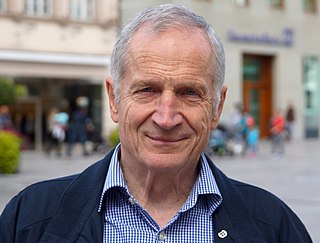
Martin Hohmann is a German lawyer and politician. He was a member of the German Parliament ("Bundestag") for the centre-right Christian Democratic Union (CDU), from 1998 until 2005. Since 2017 he has again been a member of the German Parliament for the AfD.

The Yishuv or Ha-Yishuv or Ha-Yishuv Ha-Ivri is the body of Jewish residents in the land of Israel prior to the establishment of the State of Israel in 1948. The term came into use in the 1880s, when there were about 25,000 Jews living across the Land of Israel, then comprising the southern part of Ottoman Syria, and continued to be used until 1948, by which time there were some 630,000 Jews there. The term is used in Hebrew even nowadays to denote the pre-1948 Jewish residents in the Land of Israel.
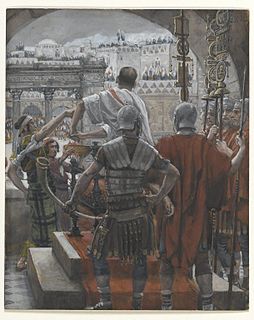
The blood curse refers to a New Testament passage from the Gospel of Matthew, which describes events taking place in Pilate's court before the crucifixion of Jesus and specifically the apparent willingness of the Jews to accept liability for Jesus' death.

The Jewish Combat Organization was a World War II resistance movement in occupied Poland, which was instrumental in organizing and launching the Warsaw Ghetto Uprising. ŻOB took part in a number of other resistance activities as well.
A Judensau is a folk art image of Jews in obscene contact with a large sow, which in Judaism is an unclean animal, that appeared during the 13th century in Germany and some other European countries; its popularity lasted for over 600 years.
Self-hatred is a pejorative characterization of persons who are judged to hold members of their apparent identity group to a higher standard of behavior than those not in that social group. In academia, the term is generally taken to mean an internalization of the prejudices of a dominant culture against a subculture by members belonging to that subculture.
"Who is a Jew?" is a basic question about Jewish identity and considerations of Jewish self-identification. The question explores ideas about Jewish personhood, which have cultural, ethnic, religious, political, genealogical, and personal dimensions. Orthodox Judaism and Conservative Judaism follow Jewish law (Halakha), deeming a person to be Jewish if their mother is Jewish or if they underwent a halakhic conversion. Reform Judaism and Reconstructionist Judaism accept both matrilineal and patrilineal descent as well as conversion. Karaite Judaism predominantly follows patrilineal descent as well as conversion.

American Jews, or Jewish Americans, are Americans who are Jews, whether by religion, ethnicity, culture, or nationality. Today the Jewish community in the United States consists primarily of Ashkenazi Jews, who descend from diaspora Jewish populations of Central and Eastern Europe and comprise about 90–95% of the American Jewish population. Most American Ashkenazim are US-born, with a dwindling number of now-elderly earlier immigrants, as well as some more recent foreign-born immigrants.
Arab Jews is a term referring to Jews living in or originating from the Arab world. The largest Jewish communities in the Arab world are in Morocco and Tunisia. Smaller Jewish populations of 100 people or less exist in Egypt, Algeria, Lebanon, Syria, Bahrain, Yemen, the United Arab Emirates, and Qatar. Some Arab countries, such as Libya, Sudan, Saudi Arabia, Oman and Jordan, are no longer home to any Jewish communities. As of 2018, Morocco had a Jewish population of 2,200, while Tunisia had a Jewish population of 1,100.
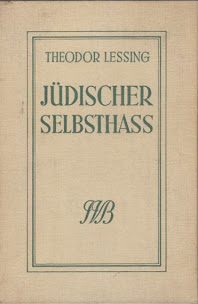
Self-hating Jew or self-loathing Jew is a pejorative term used for a Jew who is alleged to hold antisemitic views. Although similar accusations of being uncomfortable with one's Jewishness were already being made by groups of Jews against one another before Zionism existed as a movement, the concept gained widespread currency after Theodor Lessing's 1930 book Der jüdische Selbsthaß, which tried to explain the prevalence of Jewish intellectuals inciting antisemitism with their views toward Judaism. The term became "something of a key term of opprobrium in and beyond Cold War-era debates about Zionism".
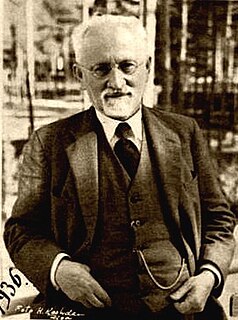
Jewish Autonomism, not connected to the contemporary political movement autonomism, was a non-Zionist political movement and ideology that emerged in Eastern Europe in the late 19th and early 20th century. One of its first and major proponents was the historian and activist Simon Dubnow. Jewish Autonomism is often referred to as "Dubnovism" or "folkism".

Sh'erit ha-Pletah is the name of an organization formed by Jewish Holocaust survivors living in Displaced Persons (DP) camps, assigned with acting on their behalf with the Allied authorities. The organization was active between 27 May 1945 and 1950-51, when it dissolved itself.
Jewish deicide is the belief that the Jewish people as a whole were responsible for the death of Jesus, a belief which is held by some Christians. Mobs used the antisemitic slur "Christ-killer" to incite violence against Jews and its use also contributed to many centuries of pogroms, the murder of Jews during the Crusades, the Spanish Inquisition and the Holocaust.
Stereotypes of Jews are generalized representations of Jews, often caricatured and of a prejudiced and antisemitic nature. The Jewish diaspora has been stereotyped for over 2,000 years as the scapegoat for a multitude of societal problems such as: Jews always acting with unforgiving hostility towards Christians, Jews' religious rituals which are thought to have specifically undermined the Christian Church and state, and Jews' habitual assassinations of Christians as their most extreme deeds.
Secondary antisemitism is a distinct form of antisemitism which is said to have appeared after the end of World War II. Secondary antisemitism is often explained as being caused by the Holocaust. One frequently quoted formulation of the concept, first published in Henryk M. Broder's 1986 book Der Ewige Antisemit, stems from the Israeli psychiatrist Zvi Rex, who once remarked: "The Germans will never forgive the Jews for Auschwitz." The term itself was coined by Peter Schönbach, a Frankfurt School co-worker of Theodor W. Adorno and Max Horkheimer, based on their Critical Theory.
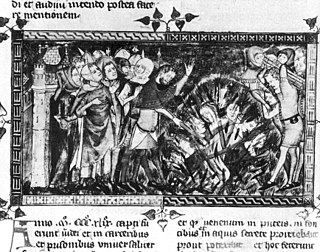
The Black Death persecutions and massacres were a series of violent attacks on Jewish communities blamed for outbreaks of the Black Death in Europe from 1348 to 1351.









